Rheumatoid Arthritis Treatment Cost in India
Unlock Exclusive Discount : Your Gateway to Premium Healthcare with Medsurge India Health Value Card.

Unlock Exclusive Discount : Your Gateway to Premium Healthcare with Medsurge India Health Value Card.

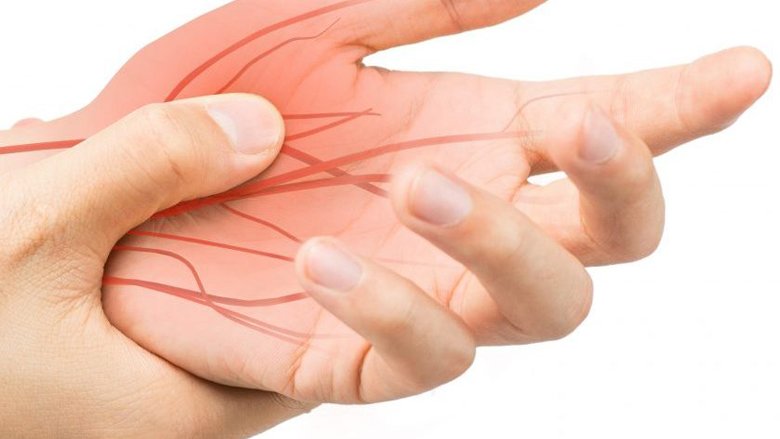
Rheumatoid Arthritis (RA) is a chronic autoimmune disorder that affects the joints and necessitates customized treatment strategies at various stages of the disease. It is essential to comprehend the available treatment options, while also being aware of the financial considerations involved.
Although there is currently no cure for RA, several treatment modalities exist to alleviate symptoms and decelerate the disease’s progression. These options encompass medications, physical therapy, and surgical interventions.
Rheumatoid Arthritis Cost in India ranges from 1500 USD and can go up to 3600 USD. The cost will vary based on the treatment prescribed by a physician, tailored to the patient’s specific conditions.
| Countries | Price |
| India | $1,500 to $3,600 |
| USA | $12,500 to $36,000 |
| United Kingdom | $12,500 to $30,000 |
Key factors that can affect the cost of Rheumatoid Arthritis in India:
Rheumatoid arthritis (RA) is a long-lasting autoimmune condition characterized by joint inflammation. In addition to the joints, it may also impact various other organs, including the heart, lungs, and eyes. This condition predominantly affects women and individuals aged 40 and above.
Rheumatoid arthritis (RA) symptoms can differ among individuals, but the most frequently observed include:
– Discomfort, rigidity, and inflammation in the joints, particularly in the hands, wrists, and feet
– Tiredness and a sense of weakness
– Elevated body temperature and decreased appetite
– Joint malformation and restricted mobility
– Weight reduction and anemia
If you are encountering any of these symptoms, it is crucial to seek medical advice for an accurate diagnosis and appropriate treatment.
Rheumatoid arthritis is classified as an autoimmune disorder. Typically, the immune system functions to defend the body against infections and diseases. However, in the case of rheumatoid arthritis, the immune system mistakenly targets healthy joint tissue. This condition can also lead to complications affecting the heart, lungs, nerves, eyes, and skin.
The exact cause of this immune response remains unclear, although there seems to be a genetic influence. While genes do not directly cause rheumatoid arthritis, they may increase susceptibility to environmental triggers, such as infections from specific viruses and bacteria, which could initiate the disease.
There are four stages of Rheumatoid Arthritis.
In this initial phase, inflammation occurs within the joint, resulting in swelling, yet without any noticeable bone damage. Symptoms such as joint pain, stiffness, or swelling may be subtle, making early detection challenging. It is common for individuals to overlook these initial signs. However, early diagnosis becomes pivotal, as prompt treatment within the first 12 weeks significantly increases the chances of achieving remission. The goal during this stage is to control inflammation and prevent the progression of the disease.
As RA advances to the moderate stage, the inflammation of the synovium, the soft tissue lining of the joint, instigates damage to both the joint cartilage and the underlying bone. This stage manifests with cartilage impairment, leading to pain, loss of mobility, and restricted joint range of motion. Notably, blood tests may not exhibit the presence of RA antibodies, particularly in cases identified as seronegative. This underscores the importance of considering clinical symptoms alongside laboratory results for an accurate diagnosis and appropriate treatment plan.
In the severe stage of rheumatoid arthritis (RA), significant damage occurs to both cartilage and bone. This results in intensified pain, increased swelling, muscle weakness, and a more noticeable decline in mobility. Permanent changes may manifest, including deformed fingers, enlarged knuckles, and possible tendon-related complications. The aggressive nature of the disease necessitates thorough interventions to alleviate symptoms and avert further joint deterioration. At this stage, vigilant monitoring and tailored treatment plans are essential.
Stage 4 signifies the final phase of RA progression, characterized as end-stage RA. At this stage, while there is no ongoing inflammation in the joints, their functionality is severely compromised. Patients endure chronic pain, swelling, stiffness, and significant loss of mobility. This stage may also lead to bone fusion, known as ankylosis, along with irreversible joint damage. Care strategies during this phase prioritize pain relief, maximizing mobility where feasible, and preserving the overall quality of life. The treatment focus shifts to palliative measures aimed at symptom relief and enhancing daily functioning.
The progression through these stages can differ among individuals, with some experiencing intermittent periods of remission. End-stage RA often results in functional limitations, underscoring the critical need for early intervention and comprehensive care management.
Know More:- Best Rheumatologist in India
The process of diagnosing Rheumatoid Arthritis treatment in India starts with a thorough physical examination conducted by your physician. During this assessment, your healthcare provider will look for signs such as fluid accumulation around the joints (pit edema), as well as any redness or warmth in the area, and will evaluate the range of motion in the joints.
To determine the specific type of arthritis affecting you, your physician may take samples of joint blood and fluids to measure the level of inflammation present.
Additionally, to assess the condition of the cartilage and bones, your physician might recommend imaging studies, including X-rays, MRIs, and CT scans. This approach also helps to rule out other possible conditions, such as bone spurs.
If medications prove ineffective, your physician may suggest a surgical knee replacement.
In cases of severe arthritis affecting the fingers or wrists, your physician might perform a joint fusion procedure. This involves securing the ends of the bones together until they heal and form a single unit.
Rheumatoid Arthritis (RA) management encompasses a range of treatment strategies customized to the individual’s specific stage, symptoms, and levels of inflammation. These strategies include medications, occupational therapy, and surgical options, along with lifestyle modifications and assistive devices to help manage symptoms at home.
Occupational therapists are essential in assisting RA patients to navigate daily tasks with reduced discomfort. They provide personalized strategies that help patients safeguard their joints, utilize assistive devices properly, and carry out everyday activities without worsening their symptoms.
In cases of severe RA, surgical intervention may be necessary to restore mobility and alleviate pain. Various surgical options include:
The most frequent factors which increase your risk of developing RA are:
Medsurge India is a prestigious support system for patients looking for doctors, hospitals, and specialized treatments. Our staff will provide you with a list of licensed, renowned, and trustworthy physicians and medical facilities for your medical needs. Additionally, we offer a treatment strategy that fits your budget. Apart from that, we assist patients with obtaining travel authorizations, medical visas, and many other things.
| Estimate Type | Estimated Cost (USD) |
|---|---|
| Total Package Estimate | USD 1,500 – USD 3,600* |
*Final cost depends on hospital, patient condition, and additional procedures/devices if required. Share your reports to get an accurate quote.
Estimated cost range in India: USD 1,500 – USD 3,600*
*For an accurate quote and hospital options, share your reports and preferred city/hospital.


Rheumatologist
Senior Consultant
10+ years of experience
Manipal Hospital, Mandi Mohalla, Mysore
View Doctor
Rheumatologist
Consultant
16+ years of experience
KMC Hospital, Hampankatta, Mangaluru
View Doctor
Rheumatologist
Senior Consultant
22+ years of experience
KMC Hospital, Hampankatta, Mangaluru
View Doctor
Rheumatologist
Senior Consultant
21+ years of experience
NH Rabindranath Tagore International Institute of Cardiac Sciences, Kolkata
View Doctor
Rheumatologist
Senior Consultant
11+ years of experience
Narayana Multispeciality Hospital, Rakhial, Ahmedabad
View Doctor
Rheumatologist
Senior Consultant
26+ Years of Experience
Kauvery Hospitals, Electronic City, Bangalore
View Doctor
Rheumatologist
Consultant
25+ years of experience
Vijaya Hospital, Chennai
View Doctor
Rheumatologist
Associate Consultant
8 years of experience
Medanta – The Medicity, Gurgaon
View Doctor
Rheumatologist
Consultant
12 years of experience
MIOT International, Chennai
View Doctor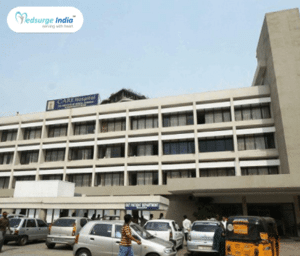
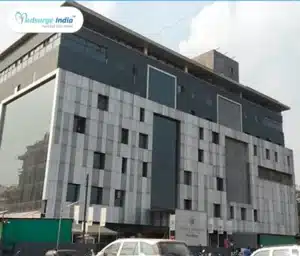
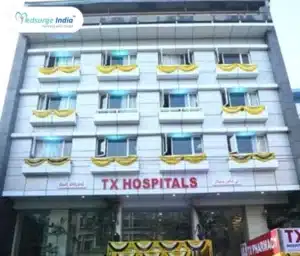
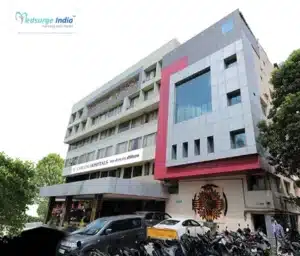



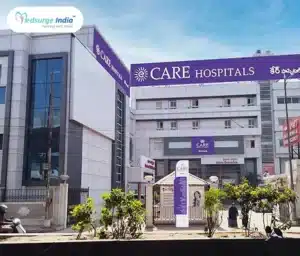

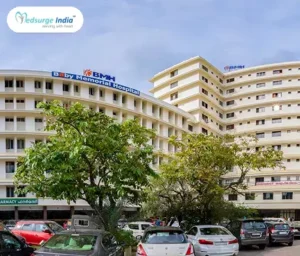
By using our site, you agree to our Terms and Conditions, Privacy Policy and Refund Policy. Medsurge India provides reliable healthcare information and treatment options to support informed decision-making. Our content is designed to support and complement the guidance of your treating doctor, helping you feel informed and confident throughout your healthcare journey. We also Accept International Payments.

Copyright © 2025 NSM ONLINE SOLUTIONS PRIVATE LIMITED. All rights reserved.